A Return to Provincetown
In the wake of a year of shutdowns, this famed travel destination offers a celebration of resilience.
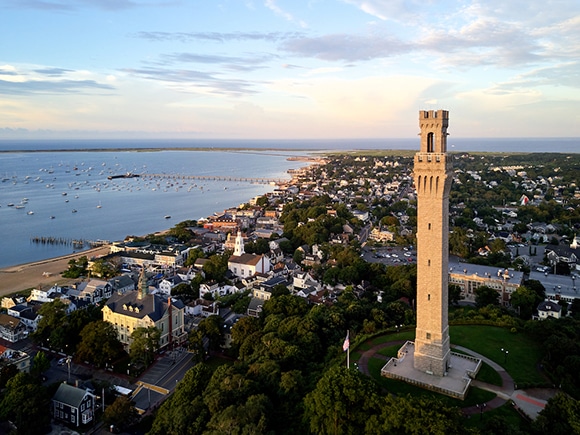
By Andrea McHugh | Sponsored by the Provincetown Tourism Office
Among the sweeping dunes that greet the sea at the northernmost tip of Cape Cod’s hooked peninsula, the view is not much changed from 400 years ago. That’s when the Pilgrims took their first steps in the New World — right here in Provincetown, Massachusetts. Today, there’s also the same sense of optimism, a hope for new beginnings following a difficult journey of deep uncertainty. During a year of grappling with the losses and challenges of a global pandemic, of staying at home and social distancing, many have felt a deep yearning for the opportunity to travel and explore again. And as they have for centuries, the arms of a resilient Provincetown are outstretched, ready to embrace visitors who look to this hub of history, culture, and breathtaking natural beauty to reignite their soul.
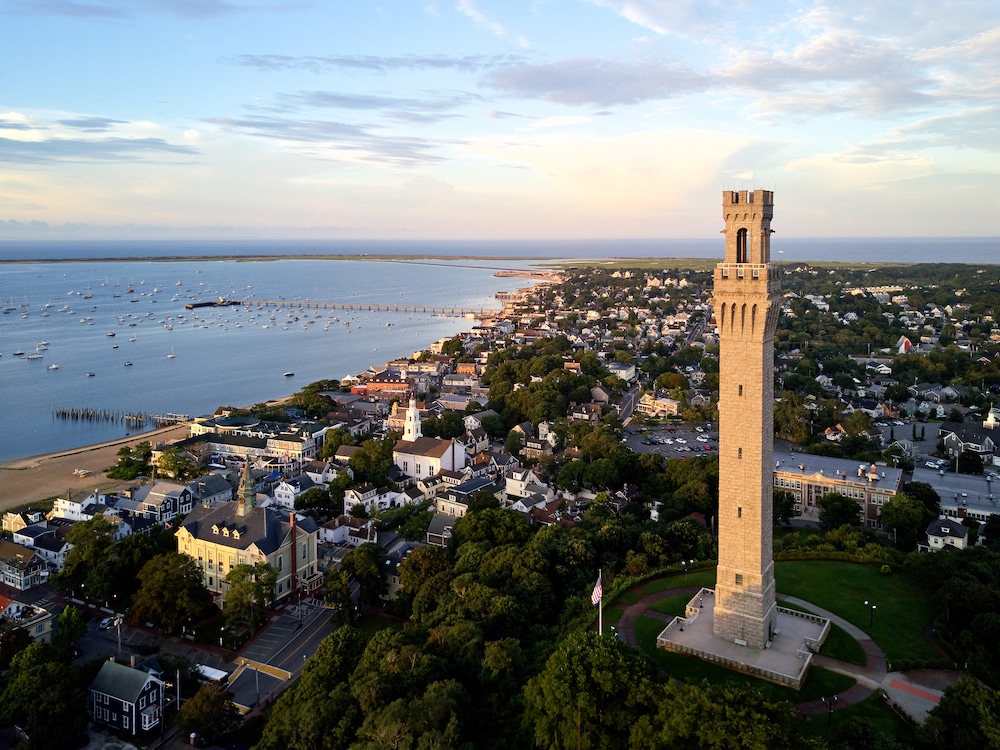
Photo Credit : Mark Fleming
Travelers who are planning to lean into this moment of hopefulness will find the Provincetown that they’ve always known and loved, a place both timeless and ever changing. But there’s also a brand-new energy to this town, as shops, restaurants, cultural venues, and inns are reopening and working to welcome people back in ways that provide peace of mind as well as lifelong memories. In a community committed to Covid compliance, some things have been reimagined; however, everywhere you look will be reminders that Provincetown — that beacon of joyful inclusivity — can teach us all to thrive, together, even as we survive.
Outdoor Adventures
Among the many ways that the past year reshaped our outlooks was instilling a newfound appreciation for the outdoors. Even in a time where travel overall declined sharply, more than 4 million people visited the Cape Cod National Seashore in 2020, making it the ninth most popular national park area in the nation. And of its 43,607 scenic, ocean-swept acres, some of the loveliest spots can be found within Provincetown’s borders. Herring Cove Beach and Race Point Beach, for example, are considered among the finest beaches on the East Coast — and many say that watching the sunset at Race Point Beach is a defining Provincetown experience.
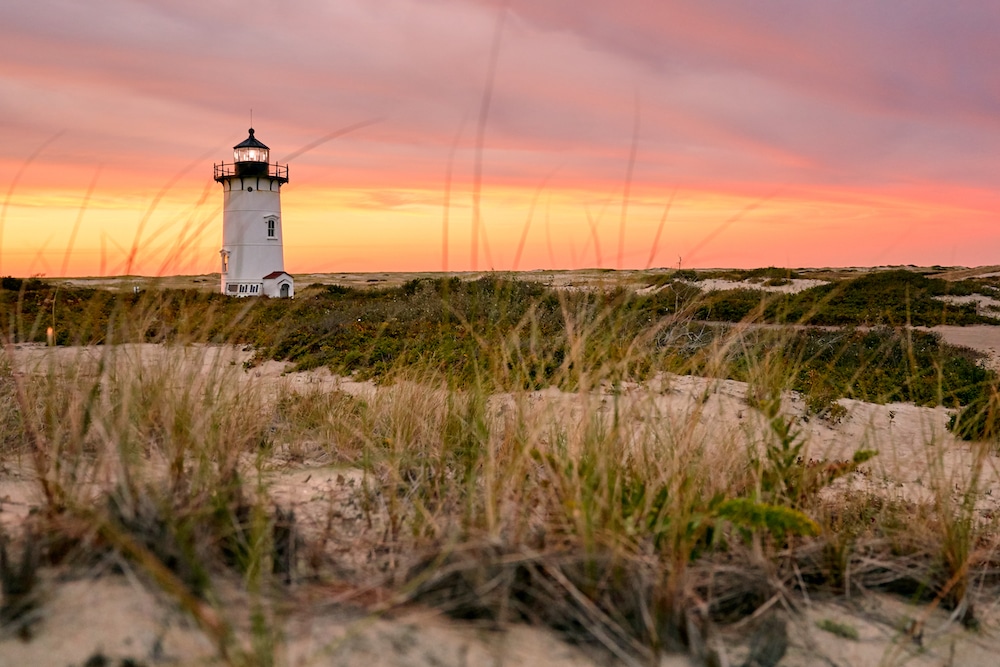
Photo Credit : Mark Fleming
Bikers, hikers, and amblers will discover plenty of ways to shake off cabin fever and reconnect with nature. Stepping onto the 1-mile Beech Forest Trail loop launches an easy walk into a forest filled with birdsong and around shimmering kettle ponds, while the Province Lands Bike Trail offers a paved 5.5-mile scenic loop with views of open dunes, forest, and beach. For those who prefer a little more vroom in their exploring, the venerable Art’s Dune Tours is back to celebrate its 75th anniversary year, though in truth it never left: Founded in 1946, this family-owned tour company operated in 2020 under scrupulous Covid safety precautions, which it is carrying forward into 2021. Come along on an off-road outing amid Provincetown’s beautiful dunes, pristine beaches, and historic artist shacks.

Photo Credit : Mark Fleming
Another outdoor attraction that’s rebounded with safety in mind: whale watching. April saw the season opener for Dolphin Fleet Whale Watch, which lays claim to being the originator of East Coast whale watching. Offering reduced capacity for more space and fewer payment contact points, among other safety measures, it provides a front-row seat to the gentle giants who flock to nutrient-rich Stellwagen Bank National Marine Sanctuary, just six miles out to sea from Provincetown, from spring until fall.

Photo Credit : Courtesy of Provincetown Office of Tourism
Dining and Nightlife
The resilient nature of Provincetown was shaped in part by the hardy fishermen who for centuries made their living by wresting everything from scallops and lobster to tuna, cod, and mackerel from the Atlantic. Seafood is still a rich part of the culinary scene here — and with many restaurants now offering reimagined and expanded outdoor dining, there may be no better time to sample the daily catch while sitting in the sun amid the ocean breezes. But there is also an endless variety of food packed into Provincetown’s three square miles; to start planning your foodie adventure, see the full listing of restaurants, bars, cafés, and confections at Provincetown Tourism. (Note: You’d be remiss to leave Provincetown without savoring a malasada, a Portuguese confection that’s a bit like a doughnut, only so much more. Recipes here are passed down from generation to generation, so consider a Provincetown malasada a history lesson for your taste buds.)
Another signature P-town offering that’s taking an al fresco turn: nightlife. The legendary Crown & Anchor, an oceanfront hotel that has welcomed travelers since the 19th century and today is famed for its complex of LGBTQ bars and clubs, launched a wildly successful outdoor entertainment series in 2020 —aka “Crown Poolside” — and plans to bring it back again this year. Other notable venues planning outdoor shows include The Pilgrim House, which has a full slate of cabaret and comedy, and The Post Office Café & Cabaret, which is rebounding in 2021 after being closed last summer for the first time in its 45-year history. And as always, you can also be entertained simply by strolling colorful and creative Commercial Street, where performers from nearby cabarets and drag shows are known to delight passersby with their talent and charm.
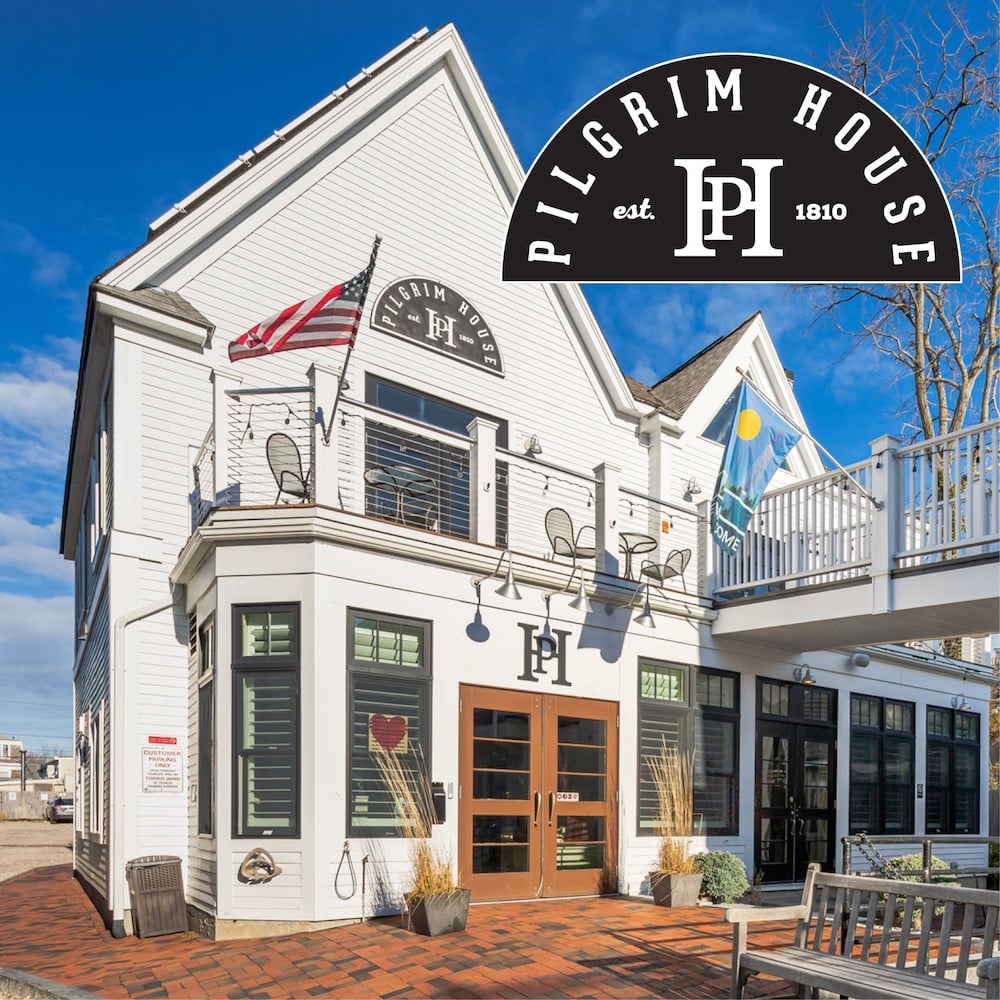
Photo Credit : Courtesy of Provincetown Office of Tourism
Arts and Culture
While New England has a rich history of robust artists’ retreats tucked into some of its most visually inspiring enclaves, only Provincetown can claim to the title of America’s oldest continuous art colony. In 1916, The Boston Globe dubbed Provincetown the “biggest art colony in the world,” as painters, poets and playwrights flocked to this welcoming seaside enclave. Art schools and galleries flourished, annual exhibitions become a staple of the summer social calendar, and arts associations and clubs gathered rosters of talent from across the globe.
With roots that run so deep, the arts and culture scene in Provincetown is not easily shaken. When Covid hit last year, the Virtual Gallery Stroll was born, putting the visual riches of dozens of Provincetown’s art galleries within easy reach, no matter where you lived. The program continues today, even as galleries throughout town have reopened with social distancing and other safety precautions in place. In more than 40 galleries scattered through Provincetown, you can find classic and contemporary pieces by thought-provoking, critically acclaimed artists alongside fresh new works by up-and-coming talent. For an overview of what awaits, visit the Provincetown Gallery Guide.
Culture aficionados will also want to check out the Provincetown Art Association and Museum (PAAM) and the Fine Arts Work Center. Founded in 1914, PAAM has weathered the storms of all the artistic “isms” of the modern era and continues to show enduring and intriguing works in every style by painters and sculptors who found their inspiration on the Outer Cape. Meanwhile, the nonprofit Fine Arts Work Center, founded in 1968, not only fosters writers and artists with fellowships, workshops, and education programs, but also enriches the Provincetown cultural scene with events for the public, including, most recently, a rich lineup of virtual readings and conversations. On the historical side, the Pilgrim Monument and Provincetown Museum remains a cornerstone of local lore that provides an essential backdrop for the lively, art-filled community of today.
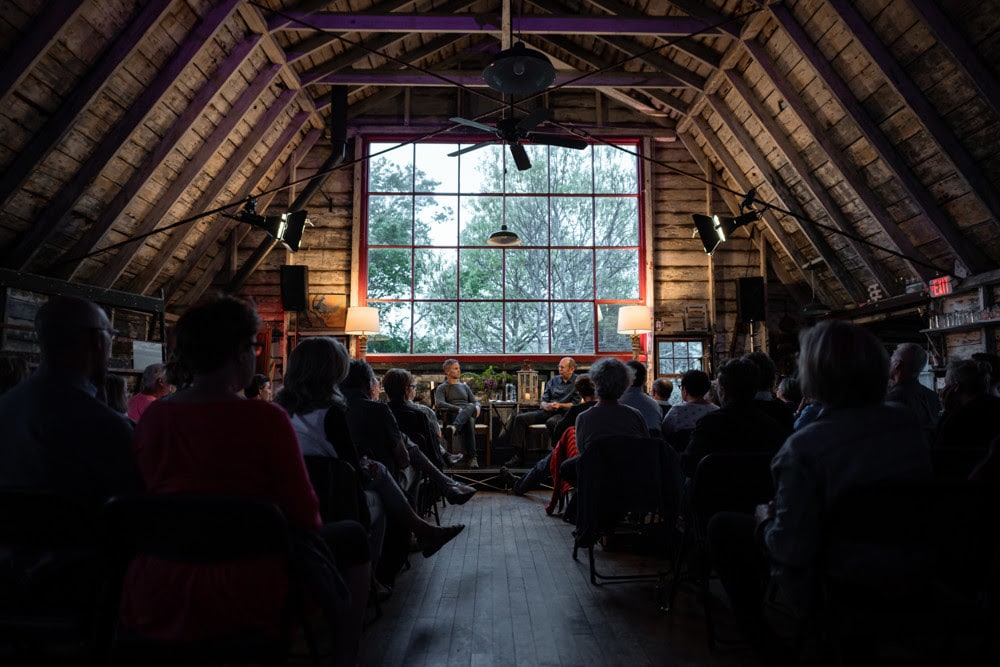
Photo Credit : Courtesy of Twenty Summers
Finally, there are Provincetown’s famed cultural events — celebrations that underscore the resilience of both this town and its visitors by bringing a sense of togetherness and shared strength. This year will mark the return of many longtime favorites presented in new, Covid-compliant ways, from Twenty Summers, a consortium of concerts, conversation, readings, and more, to the Provincetown International Film Festival to Provincetown PRIDE and Provincetown Carnival. Some may be smaller and more intimate, others completely reimagined — but all are being planned to ensure visitors’ safety as they partake in the revelry and artistry that will forever run strong in Provincetown.


